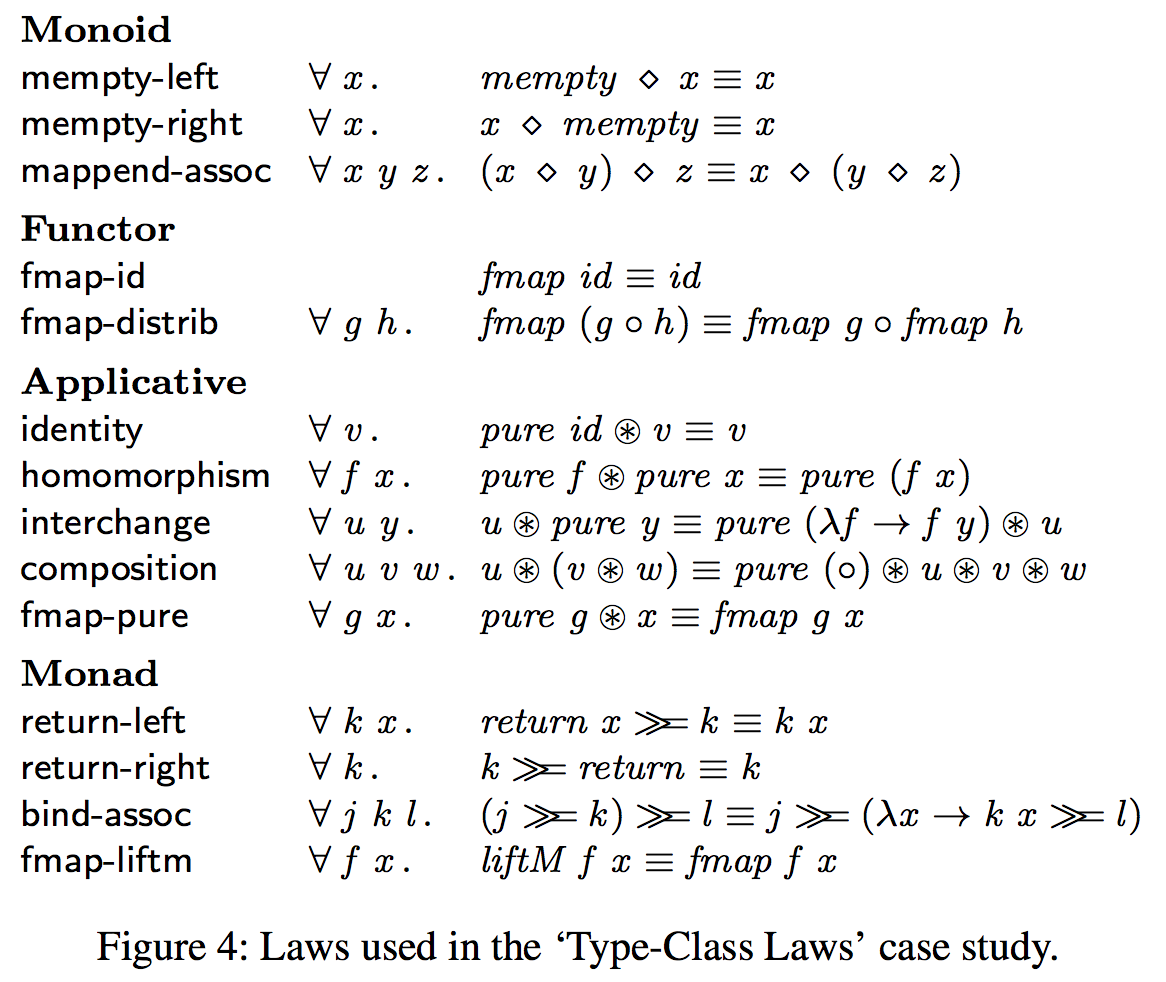Refinement Reflection
Allow terminating Haskell functions into the logic!
Theorems about Haskell functions
A. Farmer et al: Reasoning with the HERMIT

Theorems about Haskell functions
Can we express them in Liquid Haskell?
- Express & Prove Theorems in Haskell ...
- ... for Haskell functions.
Types As Theorems
Liquid Types express theorems, and
Haskell functions express proofs.
Make the theorems pretty!
ProofCombinators comes with Liquid Haskell and allows for pretty proofs!
Make the theorems even prettier!
ProofCombinators comes with Liquid Haskell and allows for pretty proofs!
Use all the underlying logic
ProofCombinators comes with Liquid Haskell and allows for pretty proofs!
Theorems about Haskell functions
Can we express them in Liquid Haskell?
- Express & Prove Theorems in Haskell...
- ... for Haskell functions.
Refinement Reflection
Reflect terminating fib in the logic.
Now fib can live in the Liquid Types!
fib is an uninterpreted function
For which logic only knows the congruence axiom...
... and nothing else
Reflection at Result Type
The type of fib connects logic & Haskell implementation
fib :: i:Nat -> {v:Nat | v == fib i && v == propFib i}
propFib i = if i == 0 then 0 else
if i == 1 then 1 else
fib (i-1) + fib (i-2)
Calling fib i reveals its implementation into the logic!
Reflection at Result Type
Q: Can you prove that fib 2 == 1?
Structuring Proofs
Using combinators from ProofCombinators!
Reusing Proofs: The because operator
Using combinators from ProofCombinators!
Pencil & Paper like Proofs
fib is increasing
Higher Order Theorems
Increasing implies monotonic!
Theorem Application
fib is monotonic!
Recap
- Refinements: Types + Predicates
- Subtyping: SMT Implication
- Measures: Specify Properties of Data
- Termination: Use Logic to Prove Termination
- Reflection: Allow Haskell functions in Logic!
Next: Case study: MapReduce: Program Properties that matter!